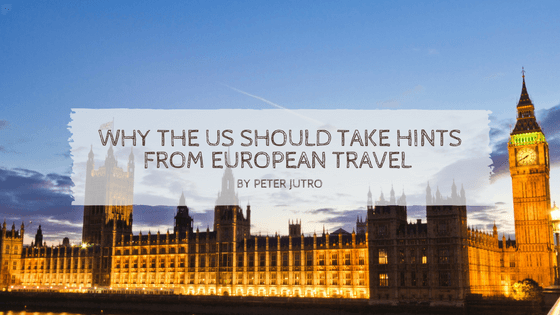An opportunity to tour the US is one that no traveler should pass up. From New York skyscrapers to small town southern charm; from white-capped Rocky Mountains to the west coast’s sparkling shores, America is positively teeming with potential for great trips.
When approached with a certain mentality, however, US travel could offer something of a limited experience–especially for Americans who have never ventured beyond their own borders. The goal here, then, is to suggest another way of framing a trip across the US, from the lens of an American who appreciates the effort involved in making the most of a European journey.
Many travelers view their trips as an opportunity for expanding one’s cultural horizons. In the case of Europe, part of that expansion involves mastering the basic expressions and cultural norms of a particular country.
From afar, America seems to have a cultural uniformity not present in Europe, but such a conclusion is only skin deep. Most Americans can verify that our culture varies dramatically between locations in terms of values, pastimes, cuisine and even language. Exploring the differences between a Louisiana bayou town and upper Manhattan, for example, will reveal cultures and lifestyles adapted to unique (natural and man-made) environments.
When we travel out-of-state for vacation, many of us prefer to take the vacationer’s mindset: we tune-out to our surroundings, cast aside life’s worries, and focus on relaxation. There is certainly nothing wrong with this, especially if having a pleasurable time is all you expect from travel. However, those seeking to maximize their experience might consider–at least temporarily–discarding this “getaway” mentality.
Americans who carry such an attitude throughout their travels in Europe may be the reason that years ago, the term “Ugly American” arose. This unfortunate stereotype refers to the ethnocentrist pleasure seeker, who acts with little respect or regard for native culture. Such a traveler might complain about small inconveniences, or denigrate customs they don’t understand.They make little effort to communicate with local people and often move in packs, so as to be shielded from anything too unusual.
Things like the general lack of a language barrier, and a relatively uniform set of norms for body language make it easier for Americans vacationing in the US to focus purely on pleasure without coming across as rude. Most Americans can travel out-of-state and have their needs fulfilled, no local cultural familiarity required. The same cannot be said for many places in Europe, where natives expect American visitors to show at least a modicum of investment in their customs, language and heritage.
Generally, Americans on a US trip usually won’t have to manage the hurdle of foreign language and culture; that is, unless they make the effort to do so. I believe that the advantages gained by delving into a culture are enormous, no matter where one happens to travel. Differences are always present, and learning why they exist grants a greater appreciation for our core, human similarities. By maintaining a mindset of discovery and cultural openness, it’s possible to turn even an interstate trip into a growth experience.

